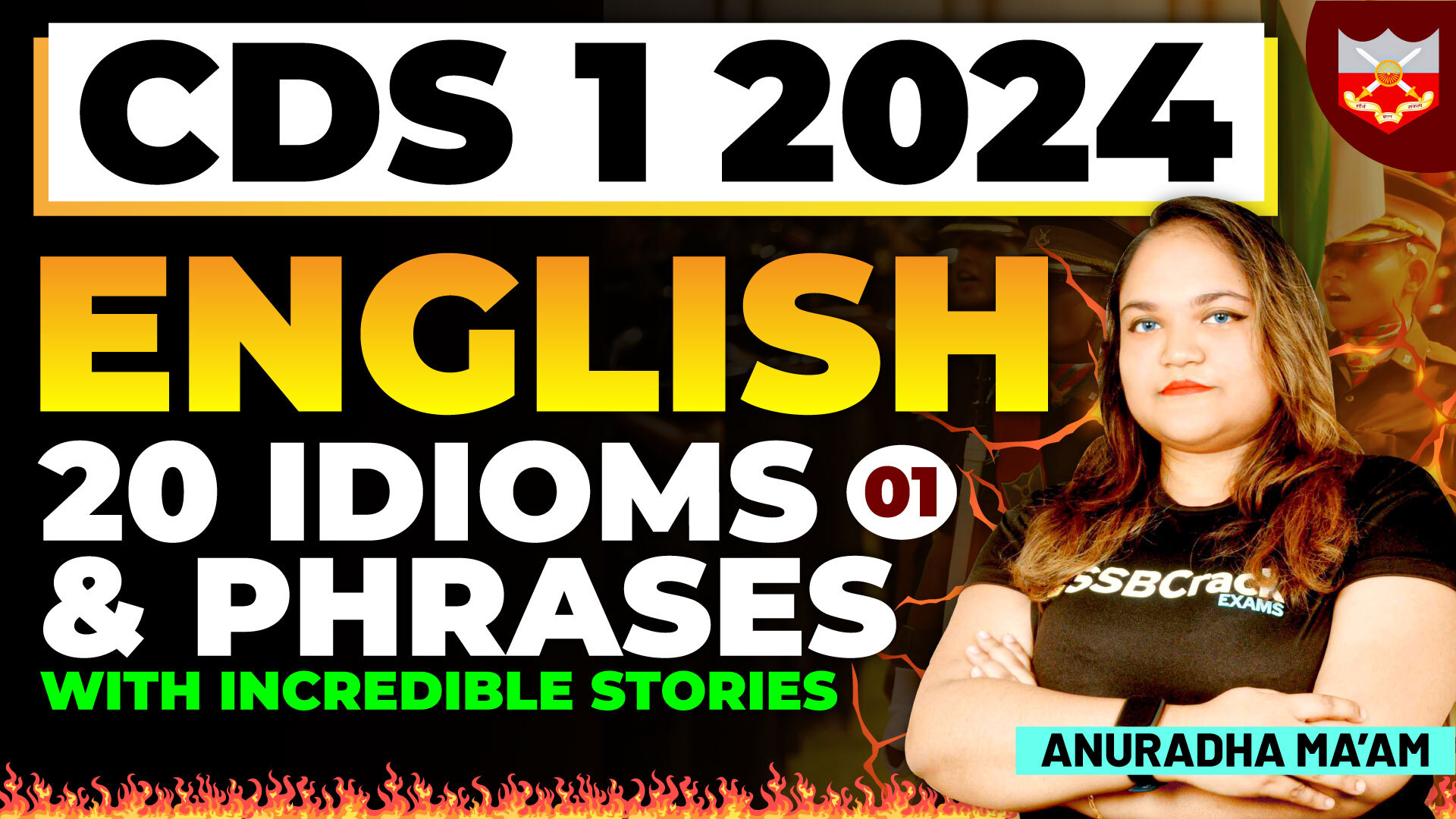The English paper of the CDS 1 2024 exam presents a myriad of linguistic challenges, with idioms and phrases being a prominent aspect. Mastering these expressions not only enhances language proficiency but also adds depth to communication skills. In this article, we unravel the fascinating origin stories behind common idioms and phrases, providing an engaging and memorable approach to learning for aspirants preparing for the CDS 1 2024 exam.
ØBite The Bullet
•Meaning: To endure something difficult or unpleasant.
•Origin: It is said to have derived from the practice of having a patient clench a bullet between their teeth as a way to cope with the extreme pain felt during a surgical procedure without anaesthetic. It has also been suggested to have evolved from the British empire expression ‘to bite the cartridge’, dating back to the Indian Rebellion of 1857.
Ø Break The Ice
•Meaning: To end conflict or initiate friendship
•Origin: This phrase refers to the carving of ice to create passages for ships on trade routes. Oftentimes, the ships would get stuck in the ice during the winter. The receiving country would send small ships to ‘break the ice’ in order to make way for the trade ships.
Ø Butter Someone Up
•Meaning: To praise or flatter someone excessively
•Origin: In ancient India, is was custom to throw butterballs of ghee (clarified butter commonly used in Indian cooking) at the statues of the gods to seek favour and forgiveness. Similarly, a Tibetan tradition dating back to the Tang Dynasty (618–907) involves the creating sculptures from butter for the New Year with the belief that such offerings would bring peace and happiness during the full lunar year.
Ø Cat Got Your Tongue?
•Meaning: When a person is at loss of words
•Origin: It is said to refer to the use of the whip, cat-o’-nine-tails by the English Navy, by which the victims were left speechless from the pain inflicted upon them after a flogging. Also, liars and blasphemers were punished by having their tongues cut out and then fed to cats. In ancient Egypt, cats were considered to be gods and it was seen an offering to the gods to give them the tongue of a liar.
Ø Turn A Blind Eye
•Meaning: To ignore something
•Origin: During the Battle of Copenhagen in 1801, the commander of British forces, Admiral Sir Hyde Parker, signalled to Admiral Horatio Nelson to stop attacking a fleet of Danish ships using a system of signal flags. Nelson raised his telescope up to his blind eye and said, “I really do not see the signal” and continued attacking. After his success, Sir Hyde Parker was disgraced and Nelson became Commander-in-Chief of the fleet.
For more, check out 20 Idioms & Phrases With Most Incredible Origin Stories | Part 1 | CDS 1 2024 | UPSC
Conclusion
Understanding the origins of idioms and phrases not only makes learning them more enjoyable but also aids in retention and comprehension. Aspirants preparing for the CDS 1 2024 exam can leverage these captivating origin stories to enhance their understanding of idiomatic expressions and excel in the English section. By immersing themselves in the rich history behind these phrases, candidates can not only strengthen their language skills but also approach the exam with confidence and proficiency.







